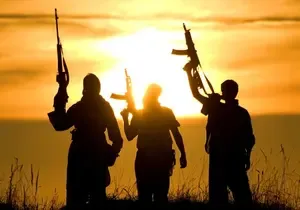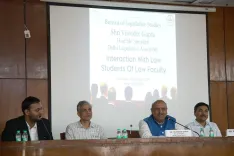How Did the Indian Army's Tiger Division Rebuild the Tawi Bridge So Quickly?

Synopsis
Key Takeaways
- Swift response: The Indian Army reconstructed the Tawi Bridge in just twelve hours.
- Engineering expertise: The use of modular Bailey components demonstrated advanced engineering skills.
- Community support: The operation prevented isolation of local villages and ensured essential supplies were delivered.
- Disaster management: The Army's actions highlight their role in civil assistance during natural calamities.
- National commitment: This operation reaffirms the Army's dedication to national security and public welfare.
Jammu, Aug 30 (NationPress) In an impressive exhibition of engineering skill and determination, the Indian Army's Tiger Division has successfully reestablished connectivity over the flooded Tawi River in Jammu, completing the reconstruction of a crucial bridge in a mere twelve hours despite challenging conditions.
The eastern segment of Tawi Bridge No 4, a vital lifeline for local populations and military logistics, suffered extensive damage due to relentless monsoon flooding that struck the region earlier this week.
This accomplishment not only lifts spirits but also emphasizes India’s self-sufficiency in managing disasters.
As per an official announcement from the Indian Army on X, engineers from the Tiger Division quickly set up a 110-foot Bailey Bridge to restore the structure.
Despite washed-out access routes, limited workspaces, and ongoing adverse weather, the team worked diligently to ensure that vehicular traffic was resumed without any delay.
This swift response prevented the potential isolation of villages and ensured the uninterrupted flow of essential supplies, highlighting the Army's pivotal role in disaster management.
The Tawi River, flowing through Jammu city, swelled due to heavy rainfall, causing widespread flooding that inundated low-lying areas, displacing hundreds of residents, and resulting in significant damage to infrastructure.
Bridge No 4, part of the strategic Jammu-Srinagar highway network, acts as a critical artery for civilian travel, tourism, and defense operations in the sensitive Jammu and Kashmir region.
Its failure could have severely disrupted relief efforts and economic activities, but the Army's prompt actions prevented a prolonged crisis.
A spokesperson for the Tiger Division emphasized the challenges faced, noting that their sappers raced against time and difficult terrain, utilizing modular Bailey components to effectively bridge the gap.
Bailey Bridges, recognized for their portability and strength, have been a staple in military engineering since World War II, proving essential in India's rugged landscapes.
Local residents expressed their gratitude, praising the Army as their savior in such trying times.
This operation is consistent with the Indian Army's broader mission in civil assistance, often stepping in during natural disasters like the 2014 Kashmir floods or the recent calamities in Uttarakhand. The Indian Army's ingenuity in crisis situations reaffirms its commitment to national security and public welfare.









